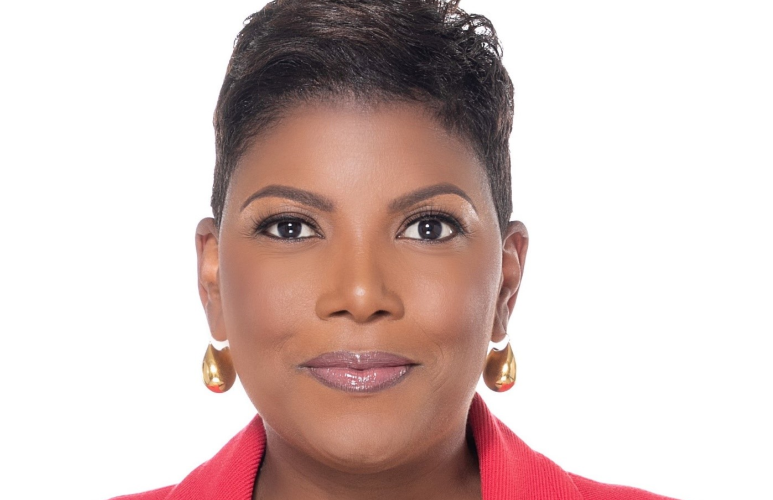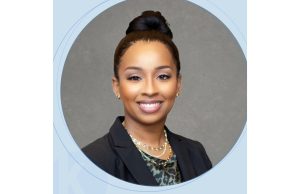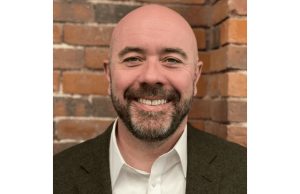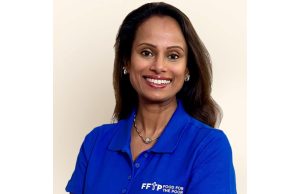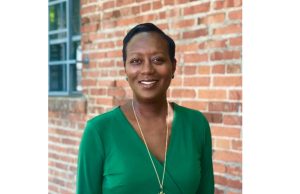Nikki Clifton leads UPS’s global philanthropy, social impact, and international community affairs, leveraging the company’s partnerships and logistical ability to respond to worldwide social, humanitarian, and environmental needs. She oversees The UPS Foundation’s work delivering health and humanitarian aid, eliminating systemic barriers to economic opportunity, building local capacity, and advancing sustainability around the world.
Clifton Joined UPS in 2003 as a cor-porate labor and employment counsel after two years as a labor and employment attorney for Delta Airlines. She’s also been in private practice.
The UPS Foundation’s mission is to deliver pathways that empower resilient, just, and safe communities. The foundation has granted more than $3 billion to communities worldwide since its founding in 1951.
1. You run the UPS Foundation now. What were your philanthropic or volunteer activities prior to joining UPS?
My upbringing in Athens, Georgia, shaped my worldview. I was blessed with two wonderful parents, Ivery and Pat Clifton, who are the root of all my success. They were public school educators who believed in quality education as the foundation for everything. They were also community and faithful servants. So, I credit them for grounding my dedication to public service from a young age through my church, civic engagement and local 4-H club.
At Howard University, I pledged Delta Sigma Theta, Inc., a public service sorority, because of its longstanding values of service and scholarship. In law school and as a young lawyer, I volunteered to support domestic violence survivors with protective orders and served as a guardian ad litem to get truant youth back in school. I’ve valued the opportunity to serve on several nonprofit boards, including the Children’s Museum of Atlanta, Easter Seals North Georgia, the National Black Child Development Institution and now Girl Scouts Nation’s Capital and Points of Light. There is power in living your values, and it has led me to the right place at UPS.
2. What is one of the more challenging logistics issues for UPS Foundation in working with the nonprofit sector?
Imagine a drone lifting off to deliver urgently needed vaccines to some of the most remote villages in Ghana. As you can probably imagine, this type of innovation is incredibly complex, especially at a time when the nonprofit sector faces intense burnout due to the pandemic.
One challenge is ensuring that we thoughtfully use our logistics capabilities when they matter most and when we can uniquely address a crisis. That requires clarity of purpose, the ability to measure outcomes and the desire to scale impact rooted in equitable access. We also want to move at the speed of business and sometimes that is challenging for the nonprofit sector. It requires both parties to listen and understand mutual points of intersection so we can deliver goods and do good in the communities we serve.
3. If there had not been a pandemic, how would the foundation be different in its operations?
When I joined the Foundation in 2020, it was clear that we had to narrow our philanthropic work to focus on what the world needed most—equitable access to essential goods. UPS has been in the healthcare logistics business for more than 15 years, so even without a pandemic, we would have expanded our health care logistics capabilities.
The pandemic required us to accelerate our decision making and get comfortable executing in ambiguity. We started measuring our impact more intentionally and saw greater value in communicating our stories, outcomes and best practices with our stakeholders. We’ve always prioritized collaboration, but the pandemic accelerated our public-private partnerships so we could be the safety net when there was none.
That operations shift positioned us to be more agile in our humanitarian support in Ukraine and during the earthquake in Turkey and Syria, in addition to support in the US during natural disasters.
4. Assuming you get an employee discount on sending packages, has UPS ever lost one of your personal shipments?
It might surprise you to know that our 500,000+ UPSers get the same discount as the public. Our drivers are meticulously trained to treat every package as if it’s their only one. In a previous UPS job, I was trained as a package car driver and assigned to a delivery route during our peak holiday season in Columbia, Maryland. I’m proud to say that I never lost a package (although my customers were happy to have their regular UPS driver back) and I’ve never had a personal shipment that didn’t make it to me. UPS drivers are synonymous with community and they are the best in the business!
5. Diversity initiatives are roughly 25% of your budget. What does DEI mean from an external point of view for UPS Foundation?
Externally, it means listening to people in community, lifting their voices and co-creating solutions that are fit for local purpose. DEI for the Foundation encompasses diverse identities, perspectives, and skills. We prioritize equitable and transparent practices and policies, including in our grantmaking. And we strive to be inclusive—always—to welcome and connect people across communities, and at the same time, acknowledge and value everyone’s and every community’s unique experiences.
6. What are you reading right now?
I’m captivated by “The 272: The Families Who Were Enslaved and Sold to Build the American Catholic Church.” The author, Rachel L. Swarns, is a professor of journalism at N.Y.U. and an African American Catholic who painstakingly researched the origin story. I have deep respect for how difficult this work must have been to unearth and how necessary it is to tell complete stories of our history, even when the conversations are hard and hurtful. When we know better, we can do better and I’m learning so much from Swarns’ account.
7. What do you look for in an executive team member?
Humility, kindness, the ability to listen and execute with courage. When I think about the leaders who have inspired me, they were people-centered and exceptional listeners. I value surrounding myself with people I can not only trust but learn from. Your career will ebb and flow, and you must surround yourself with people who are smarter than you, who will push you. They will be honest and trustworthy stewards for you.
8. What do you do for fun or to relieve stress?
I cherish my family and every moment we have together. The beach is my happy place and I love to travel and experience different cultures. Fun for me is spending time together in small and big ways. Like driving my daughter to ballet and the quality time we have singing in the car. Celebrating my son’s high school graduation recently with my whole family across three generations—that was so much fun! Watching my children, now young adults, grow and start adulting. I bask in these moments of fun, joy and laughter with them. I meditate to relieve stress. The Insight Timer App is essential.
9. Corporate foundations often are image polishing. How do you balance initiatives for the foundation versus the UPS corporate image?
I’ve been in the corporate world for more than 20 years. I used to believe that the purpose of the corporation was to create exclusive value for the business and its shareholders. But I quickly learned that it’s so much more. Its purpose is to meet the needs of all stakeholders. In doing so, we create shared value at all levels: inside and outside the company, in communities and in society. We often say a great employer is a great corporate citizen—I believe this to my core.
10. How have you incorporated the best advice you’ve received into your leadership style?
I’m constantly studying great leaders—particularly women whom I admire to shape and refine my leadership style. A quote from Oprah Winfrey resonates with me in particular: “Your legacy is every life that you’ve touched. We like to think that these great, philanthropic moments are the ones that leave the impact, or will make a huge difference in the world, but it’s really what you do every day. It’s how you use your life to be a light to somebody else’s.”
I’m intentional about connections at every level and I believe that relationships determine results.

